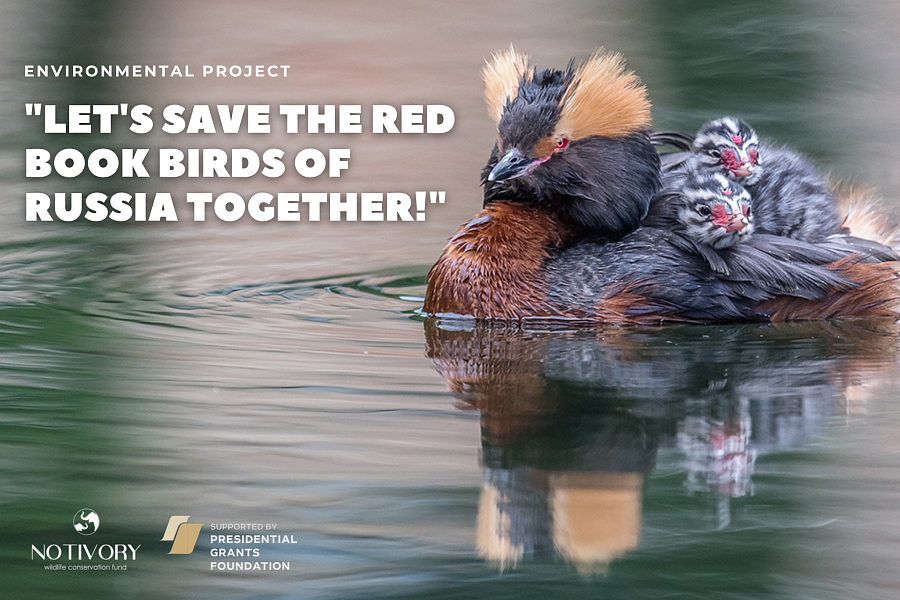May 6, 2022
The project of the Notivory Foundation «Let's save the Red Book birds of Russia together!»

The list of birds listed in the Red Book of the Vladimir region includes 52 species (2010 edition). During the coronavirus pandemic in 2020, according to the observations of residents of the Vladimir region, rare birds that had not been seen for a long time returned to the cities, including red–book bird species - osprey and black stork.
On social networks, residents of the region regularly post the results of photo hunting for birds, including such rare birds as the tenkovka warbler, the blue gull, the azure, the jay, and the gray warbler. The least information about the number of black stork, red-necked grebe, black-necked grebe, black-throated loon on the territory of the Vladimir region. According to the information on the iNaturalist portal, these birds were observed only a few times – the black-throated loon (8 observations), the black stork (93 observations), the great grebe (27 observations), while the black-necked and red-necked grebe were not seen at all. However, in the water area of an artificial reservoir near the village of Matveishchevo, Yuriev-Polsky district, ornithologists met individuals of these birds and even observed them during the nesting period.
Since 2015, an All-Russian bird census has been conducted in Russia in order to account for wintering waterfowl, but ornithologists cannot cover all wintering sites. Freezing of reservoirs deprives waterfowl of food. However, the construction of dams has led to the fact that ice-free sections of rivers are formed below the spillways and waterfowl are increasingly left to winter in central Russia.
To preserve their population, support is needed both during the wintering period by installing feeders, and during the nesting period by installing artificial nests. The experience of creating artificial nests is widely known and has a certain effectiveness on the way to preserving the population. Finding suitable conditions of existence, waterfowl show productivity in breeding offspring. It is also important to minimize anthropogenic factors – pollution of reservoirs with garbage from human activity, restriction of the movement of motorboats during the nesting period of birds, restriction of hiking trips in the nesting areas of birds.
Within the framework of our Project, a set of environmental measures will be carried out in the water area of an artificial reservoir on the Simka River and on the adjacent territory, contributing to an increase in the population, preservation of habitats and nesting of waterfowl, including those listed in the Red Book of the Russian Federation: red-necked and black-necked grebe.
The measures envisaged by the Project are aimed at reducing and eliminating the negative anthropogenic impact on the environment, preserving biological diversity and improving the ecological situation. The creation of conditions for the conservation of biodiversity and ecological balance in a certain territory, together with environmental education activities proposed for implementation during the Project, can not only form the right ecological culture in local communities, but also affect the development of the region's economy as a whole.
The Notivory team is sure that the achievement of elementary conditions - the cleanliness of reservoirs, the proximity to birds, whether they are red-book species or simply of aesthetic value, the gray heron and the great grebe, open up a lot of opportunities for a person. This can become a promise for the development of the region: the prosperity of eco-tourism, the organization of new jobs, the emergence of new eco-infrastructure facilities.
The project is being implemented using a grant from the President of the Russian Federation for the development of civil society provided by the Presidential Grants Fund.
Read more about the Project "Let's save the Red Book birds of Russia together!"
Read more
April 12, 2024
April 5, 2024